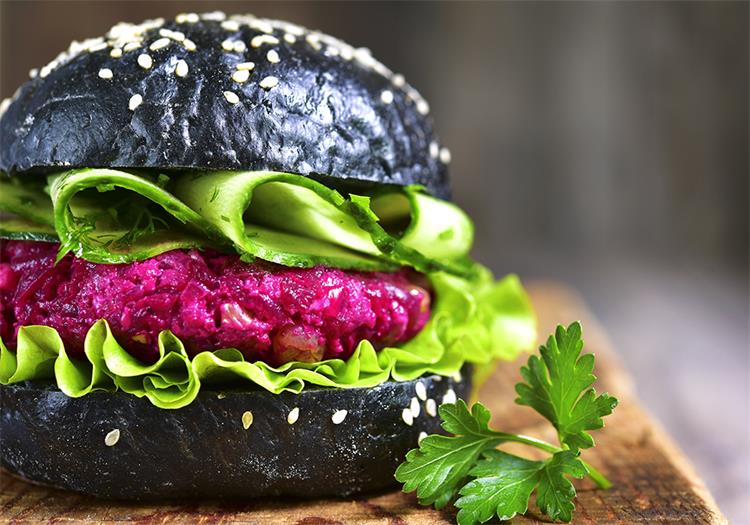Veganism goes mainstream
- In Special report
- 23:00, 13 November 2018
- 2041 Views

Thirty years ago, veganism was little more than a fringe movement in most parts of the western world. Fast forward to 2018 and it has become one of the top consumer trends in Europe.
When a serious publication like Forbes runs an article on why you should turn your business vegan in 2018, you know an opportunity must be there. Forbes is by no means a voice in the wilderness. Indeed there is mounting evidence that veganism is no longer a fringe movement, the exclusive preserve of hippies and animal rights activists as it was three or four decades ago.
While it is difficult to find re-liable figures, the statistics that are available all point in one direction: veganism is a trend and it is here to stay. ‘The scale of the operators is limited so far and led by independents, but it is definitely an emerging trend,’ agrees Yvonne Court, Head of International Consultancy in Cushman & Wakefield’s EMEA Cross Border Retail & Leisure team.
It may not be a development that the real estate agents have data on, but the trend is unmistakable once you start joining the dots of what is out there. Online food order and delivery service Just Eat, which has delivery hubs in 15 countries worldwide, reported earlier this year that 33% of its partner restaurants now offer vegan options, with many launching dedicated vegan menus, to keep up with increasing demand.
Following recent research, the UK-based company said it expected veganism to be the biggest food trend of 2018. Demand for healthy choices generally grew by 94% in 2017 versus 2016, and gluten-free options increased by 72%, according to Just Eat Marketing Director, Edel Kinane.
‘The results are a good insight into the future consumer trends and while convenience will continue to be key for consumers next year and beyond, we know that they are increasingly looking for more diverse, healthy, gluten free and plant-based vegan options.’
The Anglo-Saxon world leads
There are other signs that the trend is becoming more widespread both in Europe and worldwide. US-based data insights company 1010 Data has conducted a number of surveys showing that consumers are becoming more mindful of the products they put in and on their bodies, and of the environmental impact they have.
The most recent survey conducted in the UK found that over 542,000 people are following a vegan diet – an increase of more than 3.5 times the number of vegans over the past decade, making veganism one of Britain’s fastest growing lifestyle movements.
The movement is being driven by young people making more ethical and compassionate choices – 42% of all vegans are in the 15-34 age category compared to just 14% who are over 65. This indicates growth is likely to rise further in the future. In total an estimated 3.25% of the British population – around 1.68 million people – are either vegetarian or vegan.
Meanwhile in the US 6% of the population now identify as vegan, showing an increase of 500% since 2014 according to research provided by GlobalData. Earlier this year market research firm Euromonitor International found that Australia is the third fastest growing vegan market in the world after the United Arab Emirates and China. In terms of the packaged vegan food market, the US currently leads with ($1.75 bn), followed by Germany ($614 mln) and the UK ($507 mln).
From bratwurst to green burgers
Definitions of what it means to be vegetarian or vegan differ per country which makes it difficult to find comparable figures let alone reliable statistics. But it is clear that the trend is not confined to the Anglo-Saxon world. On the contrary, the figures above show that even a traditionally meat-centric nation like Germany – home to famous bratwurst and schnitzel – is forging a new reputation for itself as a world leader in veganism.
‘Veganism has made incredible progress in the US and the UK but it is also making huge strides on the Continent, in particular Germany,’ notes Paulina Herrmann, retail consultant at JLL. ‘That is really quite amazing if you realise what a big meat-eating country Germany is. There has been a real revolution in the last two to five years. The availability of vegan products in supermarkets and restaurants has increased massively.’
‘Veganism has made incredible progress in the US and UK but it is also making huge strides on the Continent.’
Paulina Herrmann, retail consultant JLL
Berlin in particular is leading the trend, she adds. ‘You also see vegan products on street markets, food stores and restaurants. Berlin has come from nowhere to rank as one of the best vegan cities in the world.’
There is more evidence that Germany is emerging as a major force in the so-called ‘vegan revolution’. According to recent market analysis by market intelligence agency Mintel, Germany has retained its crown this year as the country with the highest percentage of global vegan food and drink launches, accounting for 15% of global vegan introductions between July 2017 and June 2018.
This is three times as much as the global figure for this period. A surprising 18% of all global food and drink launches in 2016 took place in Germany, which is a significant in-crease from 1% in 2012. The closest contender is the US at 17% and the UK at 11%. Other European nations hover around 3%.
‘In recent years, consumers around the world have in-creased their intake of plant-based foods and Germany is no exception,’ notes Katya Witham, global food & drink analyst at Mintel.
Witham points out that Germany is a staunchly green-minded nation with widespread concerns about animal welfare. ‘Reducing meat consumption is a natural extension of those values.’
Veganism is now also seen as a trendy lifestyle, she adds. ‘Today, vegan products attract attention from a much wider audience, namely health and ethically driven, flexi-vegan consumers.’
HEALTHY ALTERNATIVES
Indeed, Germany was the first country in Europe to see the creation of a purely vegan food chain. Founded in February 2011, Veganz offers products that are guaranteed to be animal (cruelty) free, true to its slogan ‘We Love Life’.
Over the past seven years, the company has grown strongly and now distribute its products with food retailing partners and has 10 branches around Europe. Veganz imports goods from more than 30 countries worldwide and now offers 4,500 vegan products from over 260 suppliers.
Independent burger brands like Impossible Burger, Beyond Meat and By Chloe are also leading the vegan charge and continue to break records, Herrmann says. ‘These retailers are incredibly successful. They provide plant-based alternatives that look good and taste very similar to meat products. They are showing that you can do it and are a good example of how far you can go.’
The rise of vegan and other healthy alternatives may have started at grassroots level with smaller independent stores and producers, but the big retail chains are also getting in on the act.
Earlier this year, UK supermarket Waitrose announced it had launched a major new range of vegan products including ready-made meals like pizza, vegan burgers & cheese, as well as staples like lemon mayo and tartar sauce. A Nut Roast and Beet Wellington is also part of the line-up.
While a growing a number of supermarkets across Europe are catering increasingly to vegans and vegetarians, Waitrose claims it is the first of the big retailers to offer a dedicated vegan section in response to customer demand.
In October, the supermarket chain reported that sales of vegan and vegetarian products are up 85% compared to last year. Other big UK chains such as Marks & Spencer and Pret a Manger have also introduced vegan products, while Sainsbury’s and Tesco have extended their existing ranges of vegan products.
It is no longer acceptable for high street food retailers and restaurants not to have a menu with at least some vegan products, Herrmann says. ‘They have to become conscious that millennial won’t accept that. It’s more than a demand, it’s an expectation.’
A cool lifestyle
The proliferation of vegan products in the UK and Europe is the result of ‘a big plant-based shift culturally, a systemic change in the way that we’re approaching food and the way that we feed ourselves’, Tim Barford, manager of Europe’s largest vegan events company, VegfestUK, told The Guardiannewspaper earlier this year.
Barford claims modern veganists are more reflective and more effective than their punk predecessors with their ‘fuck you’ kind of attitude in the 1970s and 80s.
Today veganism appeals to a far broader swathe of population, thanks not least to a string of meat and poultry scandals in recent decades.
Herrmann agrees: ‘Millennials are looking for authentic and ethical brands, they would rather buy something that they feel supports their community. It’s cool these days to be vegan.’
Image: GettyImages/Lilechka75






